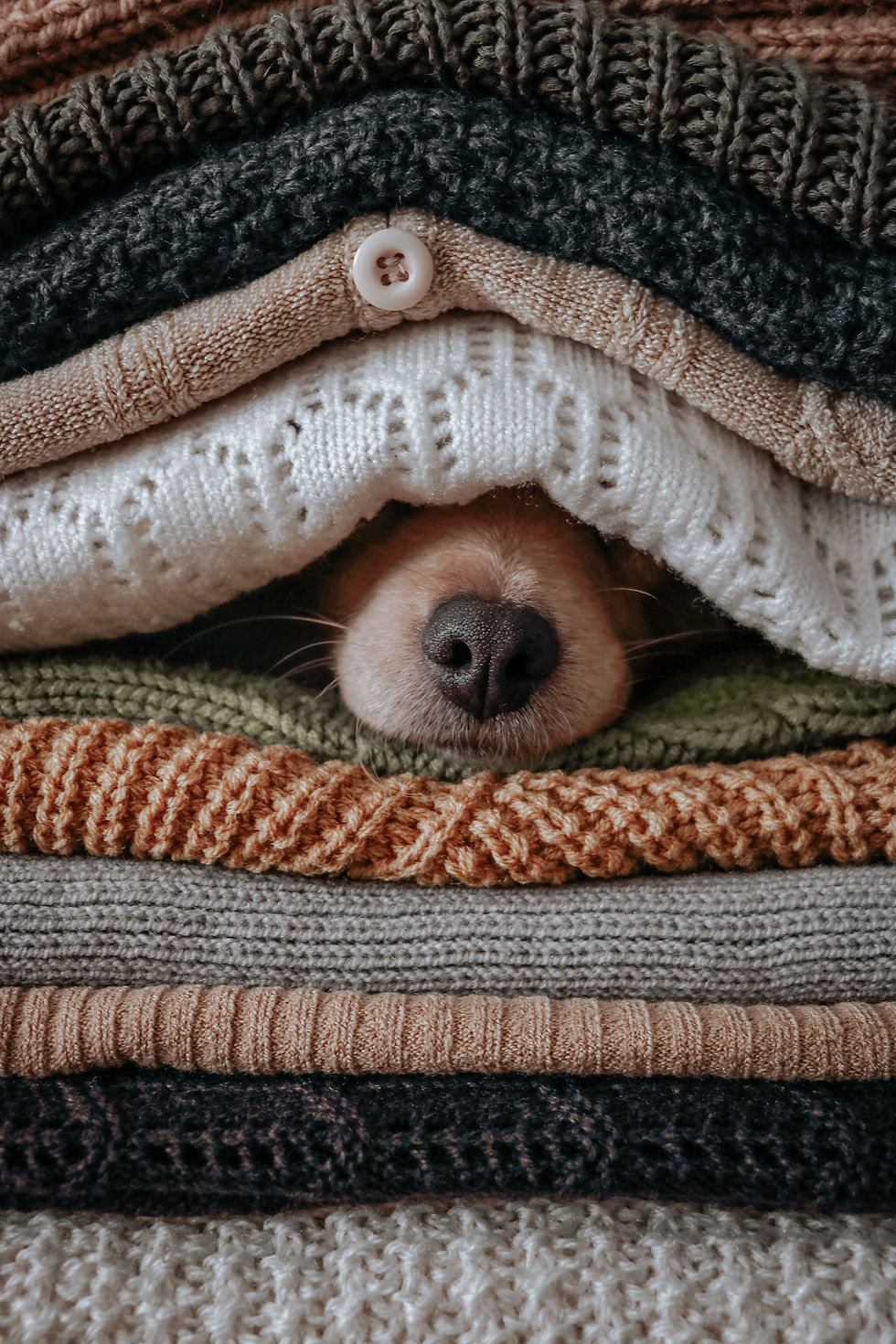My Dog is Anxious: What Do I Do?
- getsitdonedogs
- Mar 16, 2025
- 2 min read

Anxiety can manifest itself in a variety of behaviors and many of those behaviors, we don’t want to encourage or continue.
Dogs can either retreat and go inward (shutting down aka “imploding”) or go outward (“exploding” and looking aggressive). Common behaviors can include:
INWARD (implode)
hiding
crouching low to the ground/trying to make themselves small
shaking (whole body or just part of the body)
tail low to the ground or tucked underneath their body
panting/heaving breathing
drooling
OUWARD (explode)
barking
snarling
growling
showing teeth
lunging
wrinkled nose and mouth
How can we help?
There are a variety of ways that we can help our dogs feel more safe and secure. Keep in mind that what works and doesn’t work will be different for each dog and it can be a slow process to help your dog work through this.
provide safe spaces for them to retreat to (kennels/crates, dog beds, certain areas or rooms of the house
try a Calming Pet Bed or a bed that they can burrow in to, building a blanket fort for them to snuggle into can help (snuggle with them if they are okay with it)
Thundershirt or Anti-Anxiety Wrap (you just use an Ace bandage and wrap it around their body in a specific way)
Aromatherapy: there are sprays, plug-in’s and collars
Provide adequate and appropriate mental enrichment: food games, food puzzle toys, opportunities to sniff, lick, and chew (these activities can be soothing and help to reduce or alleviate anxiety)
Provide adequate and appropriate physical enrichment: walks, fitness, games, dog sport, etc.
CBD oils, chews, and treats
Make a chamomile tea broth and drizzle over food
Playing soft and soothing music (at a low level)
Running a fan or a white noise machine (at a low level)
Practice Mat Work
Practice nervous system co-regulation (sitting together and taking deep breaths, this will encourage your dog to match your energy and breathing pattern)
Work on your own energy levels and interact with your dog in a calm manner that promotes safety and security (low soft voice, sing to them, etc.)
Practice patience. Anxiety typcially means that your dog’s nervous system is disregulated and they don’t currently feel safe. Give them time and help them work through it.
Consider massage and/or acupuncture (can help to regulate the nervous system)
Talk to your vet about medications. They can sometimes be really helpful and life-changing (and your dog doesn’t necessarily need to take one forever).



Comments